NHS guidelines for 'major incidents' spark political row
- Published
Ed Miliband is challenged by the prime minster on "disgraceful remarks about weaponising the NHS"
David Cameron and Ed Miliband have clashed in the Commons over the NHS amid a row about guidance to hospitals over when they call "major incidents".
Mr Miliband said ministers were making it "harder" for hospitals to deal with demands on them for political reasons.
The NHS was "in crisis", he said, and Mr Cameron had broken a promise at the last election to save 29 NHS units.
But Mr Cameron said ministers had not given managers "any instructions" and Mr Miliband was "clasping at straws".
The future of the NHS dominated Prime Minister's Questions as the Conservatives and Labour continue to argue over the relative performance of the health service in England and Wales in the run-up to May's election.
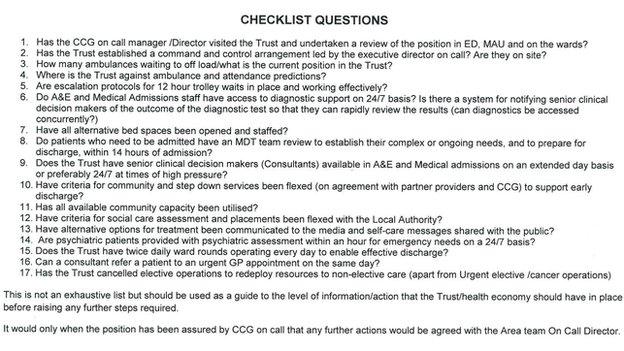
The guidance has been sent to hospitals in the West Midlands
In the Commons, Mr Cameron brought up figures published on Wednesday showing the proportion of ambulances in Wales, where the health service is run by Labour, meeting the target response time for the most urgent calls was the worst on record.
The prime minister said this was evidence that the NHS was "worse in Wales than in England" and that cuts to the health service budget in Wales had "cost it dear".
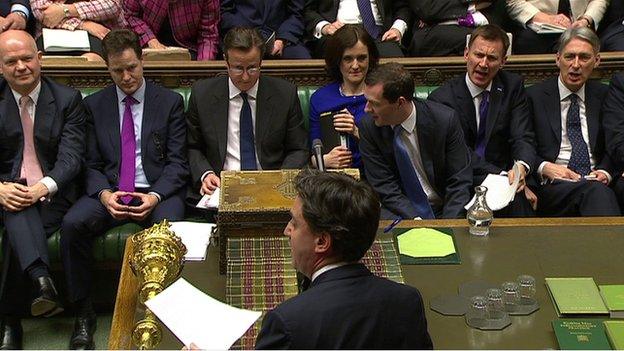
Health Secretary Jeremy Hunt, second right, takes issue with Ed Miliband's points during Prime Minister's Questions
He claimed Mr Miliband was "in a desperate mess" over the NHS and urged him again to withdraw remarks he reportedly made last year about "weaponising" the health service as an election issue.
But the Labour leader said Mr Cameron should apologise for breaking promises on health made in 2010 and accused him of making "political propaganda" out of the difficulties facing the NHS in Wales.
'On his watch'
Mr Miliband pressed the prime minister on the news that the West Midlands NHS region has issued guidance to hospitals, GPs and Ambulance Trusts in their area - which includes Birmingham, Coventry and Wolverhampton - on declaring major incidents.
"Today's revelation shows once again that the NHS is in a crisis of his own making, on his watch and that is why no-one will trust him on the NHS ever again," he said.
But Mr Cameron insisted that ministers had not exerted any pressure on hospitals.
"It is perfectly clear what is happening," he said. "He is clasping at straws because he is in a desperate mess on the NHS."
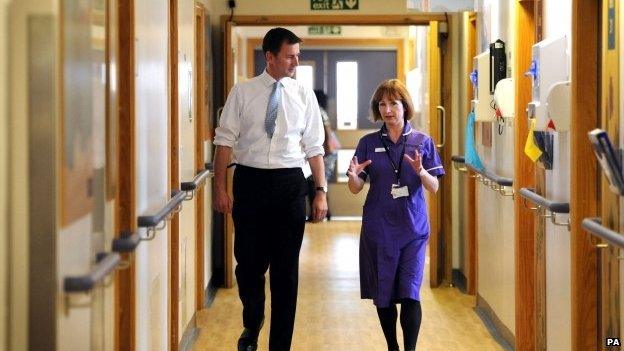
Jeremy Hunt has said the guidelines were drawn up locally
Hospitals in the West Midlands were sent a "checklist" of criteria to consider before opting to declare a major incident.
Factors to be weighed up included whether elective operations have been cancelled so staff can be redeployed for emergency care, how many ambulances are waiting to deliver patients and the position elsewhere in the surrounding area and whether all alternative bed spaces have been utilised and are staffed.
The document states this "should be used as a guide to the level of information that a trust should have in place before raising any further steps required".

What is a major incident?
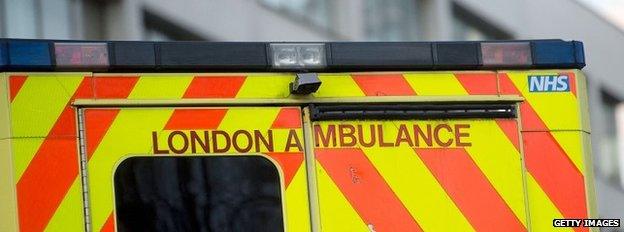
An internal major incident is activated when a Trust is under significant pressure that is internal to the organisation - and is not the result of an external event.
It is a business continuity arrangement, where a decision is taken to reduce some services to support higher priority ones.
A major incident is a significant incident or emergency that cannot be managed within routine service arrangements.
It requires the implementation of special procedures and involves one or more of the emergency services, the NHS or a local authority.
Source: NHS England - London region

In an email exchange seen by the BBC, a head of operations at one NHS Trust in the West Midlands region says he believes the guidelines have been introduced "to effectively stop trusts from calling a major incident".
He writes: "This is the enhanced criteria that have been introduced by NHS England to effectively stop trusts from calling a major incident. Worth sharing with emergency department consultants as our hands will be tied in most cases if they wish to call a major incident for capacity reasons."
In the same email exchange, an A&E consultant says: "It strikes me as an attempt to dampen down the heat and media attention on the emergency departments and their major incidents."
'Political football'
Answering an urgent question in the House of Commons, Health Secretary Jeremy Hunt insisted that he had nothing to do with the move.
"This is a local NHS doing its best to get good guidelines out in a difficult winter," he told MPs. "We must trust the managers and clinicians in our local NHS to take these decisions and support them in doing so."
Labour's Andy Burnham: "We need to know who approved this guidance and why it was issued in the middle of a very difficult winter"
Brandishing what he said was a document containing official guidance in the Commons, shadow health secretary Andy Burnham said suggestions it was a local matter "would not wash" as the guidance stated that major incidents must be approved by the on call director at NHS England, a national public body.
"Will you today instruct NHS England to withdraw this guidance and issue more appropriate instructions to the NHS in the region?" he asked.
'Best practice'
NHS England said the document Mr Burnham had referred to was a national "incident response plan" it had drawn up in conjunction with the Cabinet Office in January 2014 and sent to every health trust in England.
The checklist, it added, was a separate piece of work produced for clinical commissioning groups and on-call area managers in the West Midlands in response to pressures over the recent Christmas holiday period.
And a senior NHS executive insisted decisions on major incidents were not taken by ministers but by management locally.
"Before doing so best practice dictates that they take account of the wider impacts on other parts of the NHS so that patient safety in the round is protected," said Dr Barbara Hakin, National Director of Commissioning Operations for NHS England.
"That's why NHS England's local area team in the West Midlands decided to issue these guidelines."
The government has acknowledged the NHS is facing acute pressures this winter but has defended its performance and said additional funding is being made available.
Labour is also facing questions over its health policy, with former health secretary Alan Milburn warning it risks retreating into a "comfort zone" where it is focused on resources rather than reform.
- Published28 January 2015
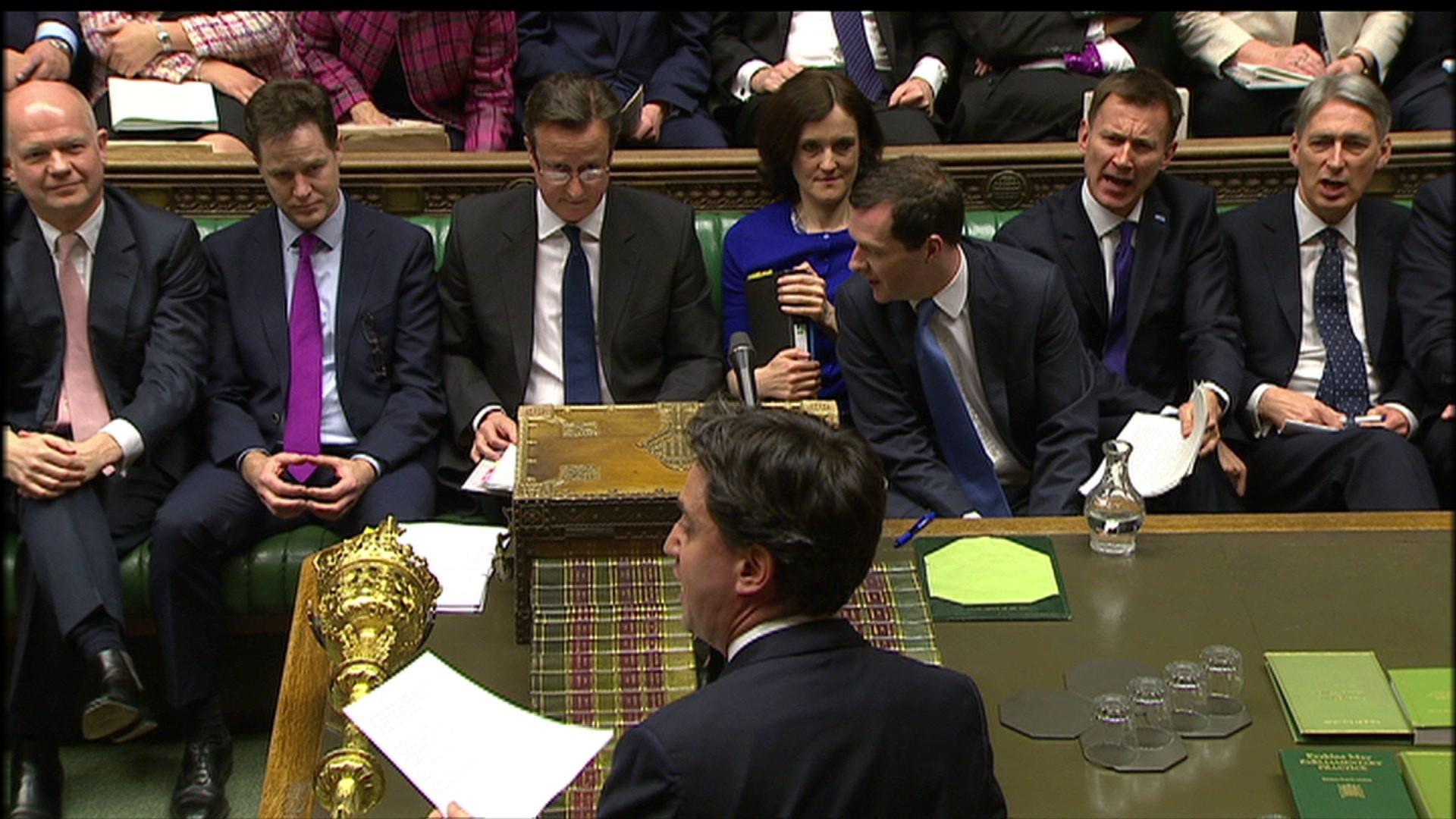
- Published28 January 2015
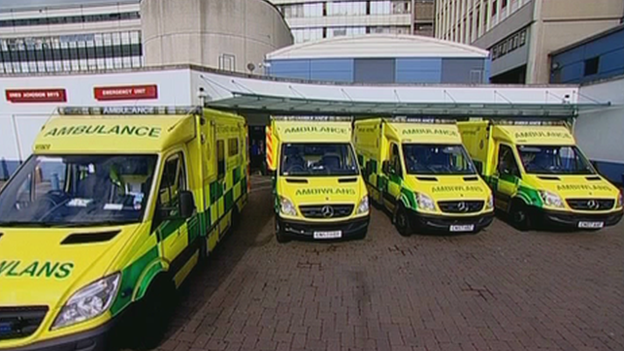
- Published7 January 2015
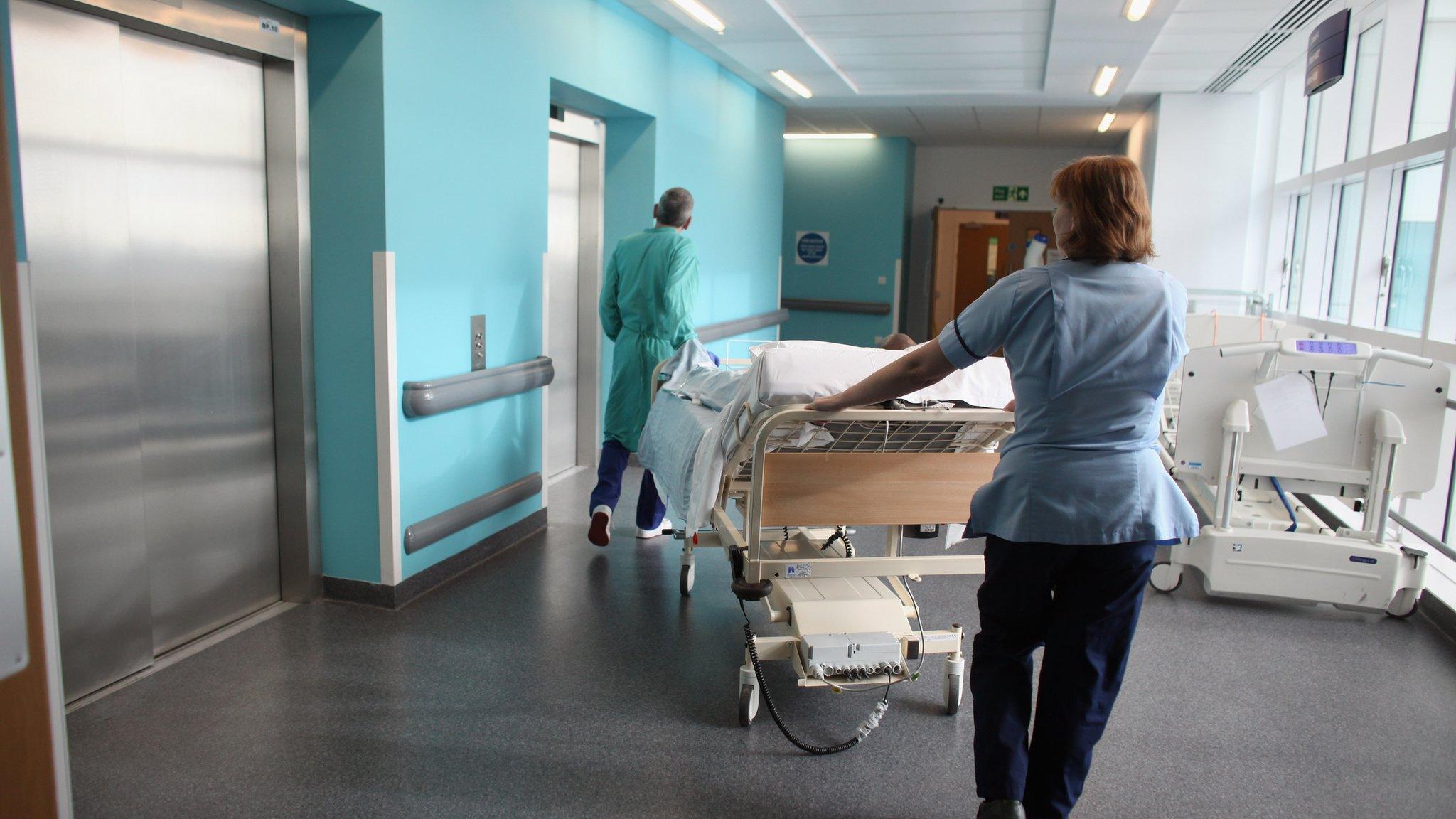
- Published6 January 2015